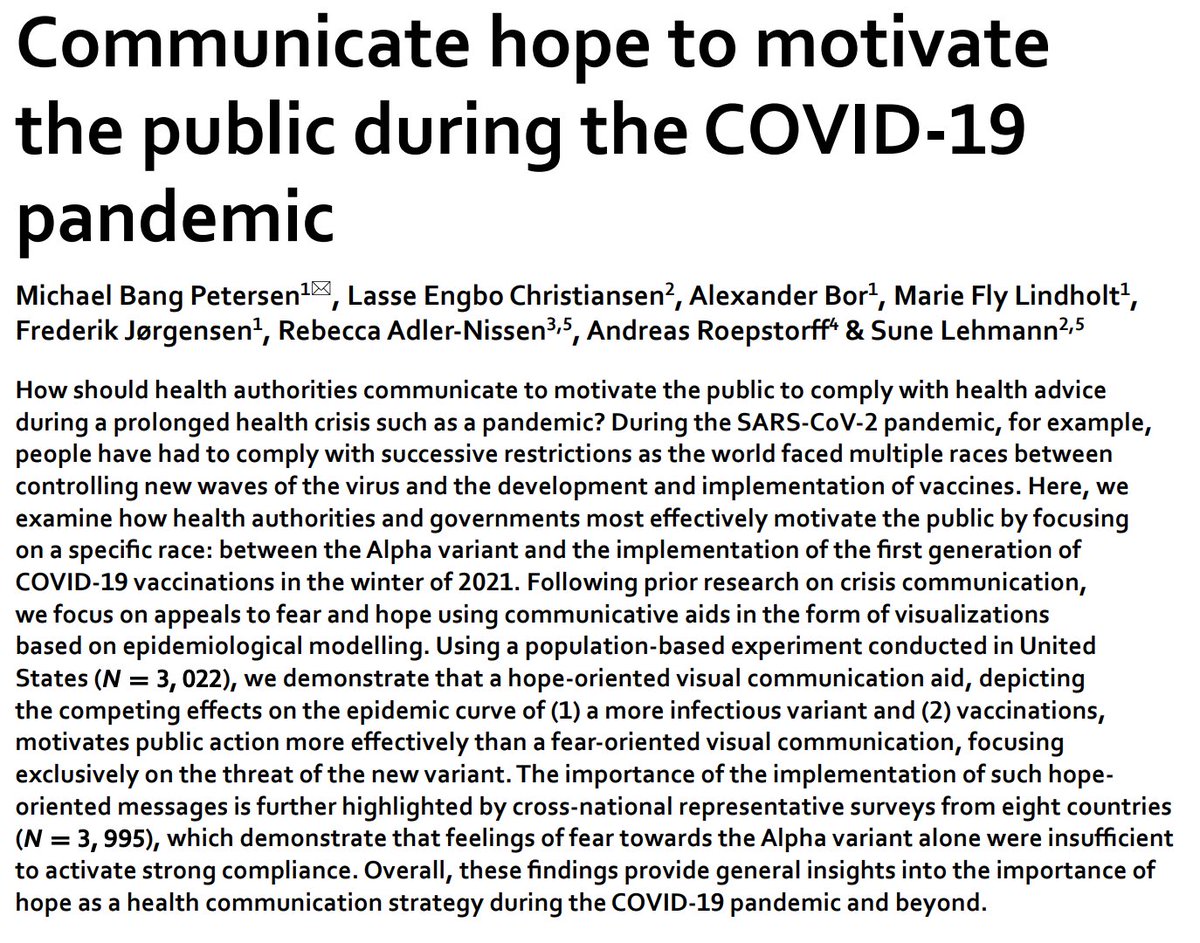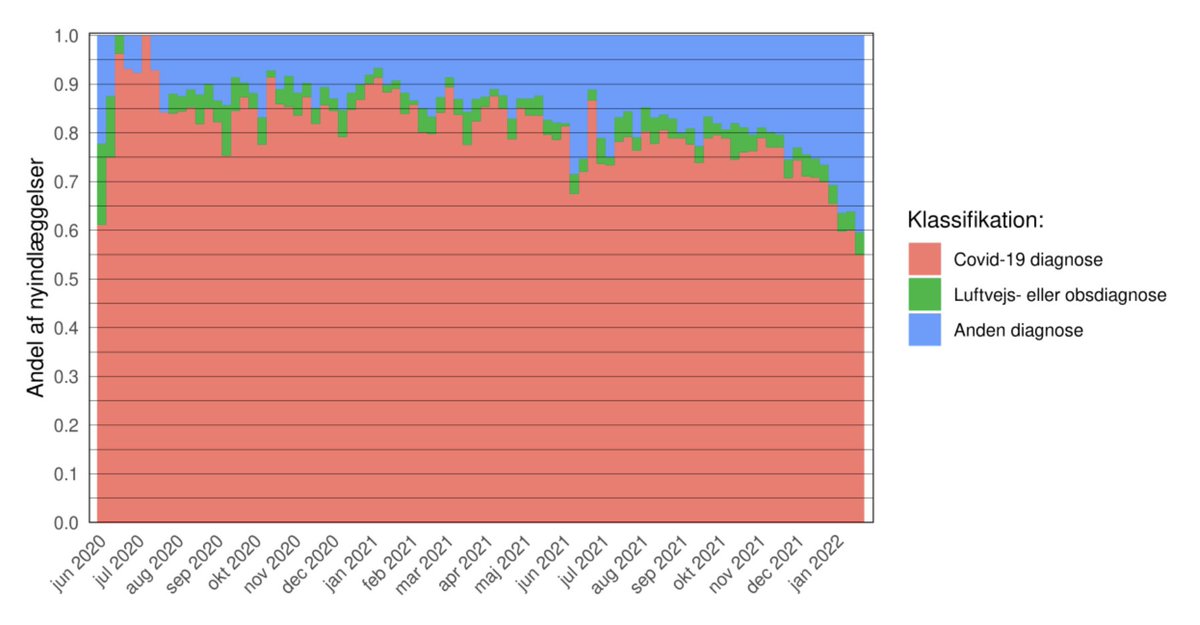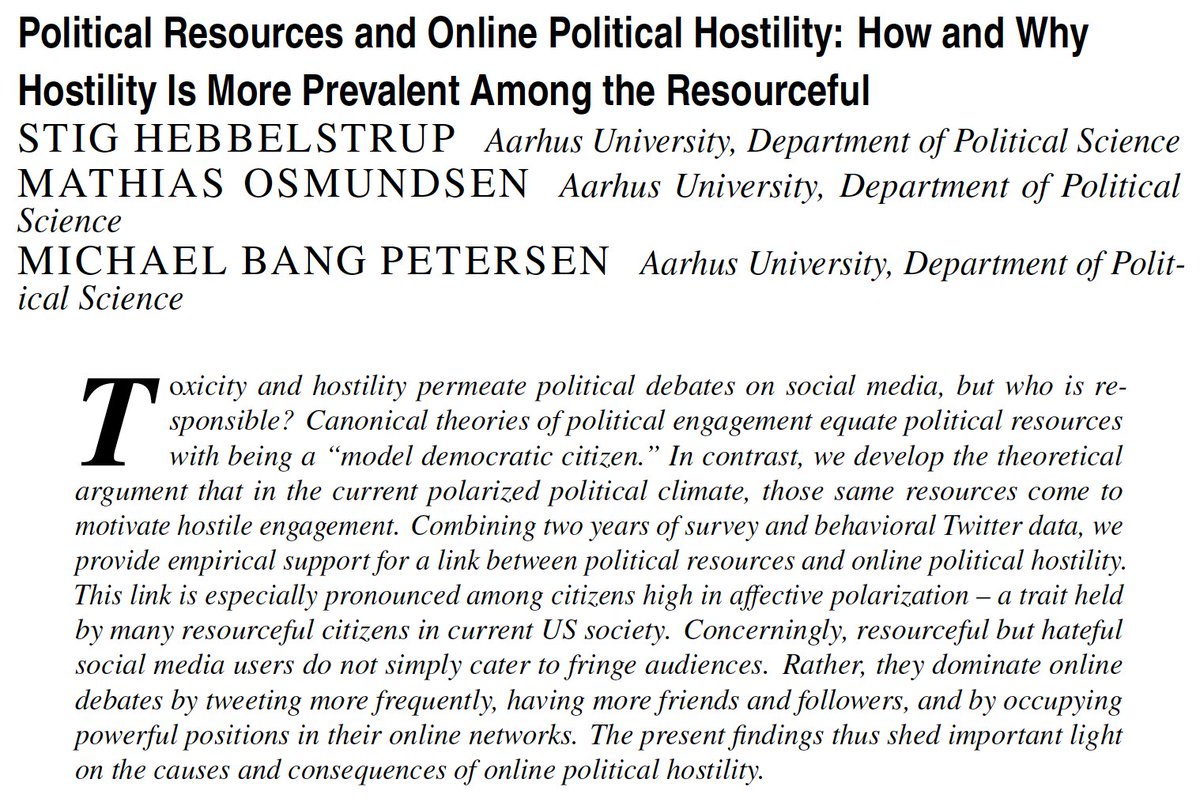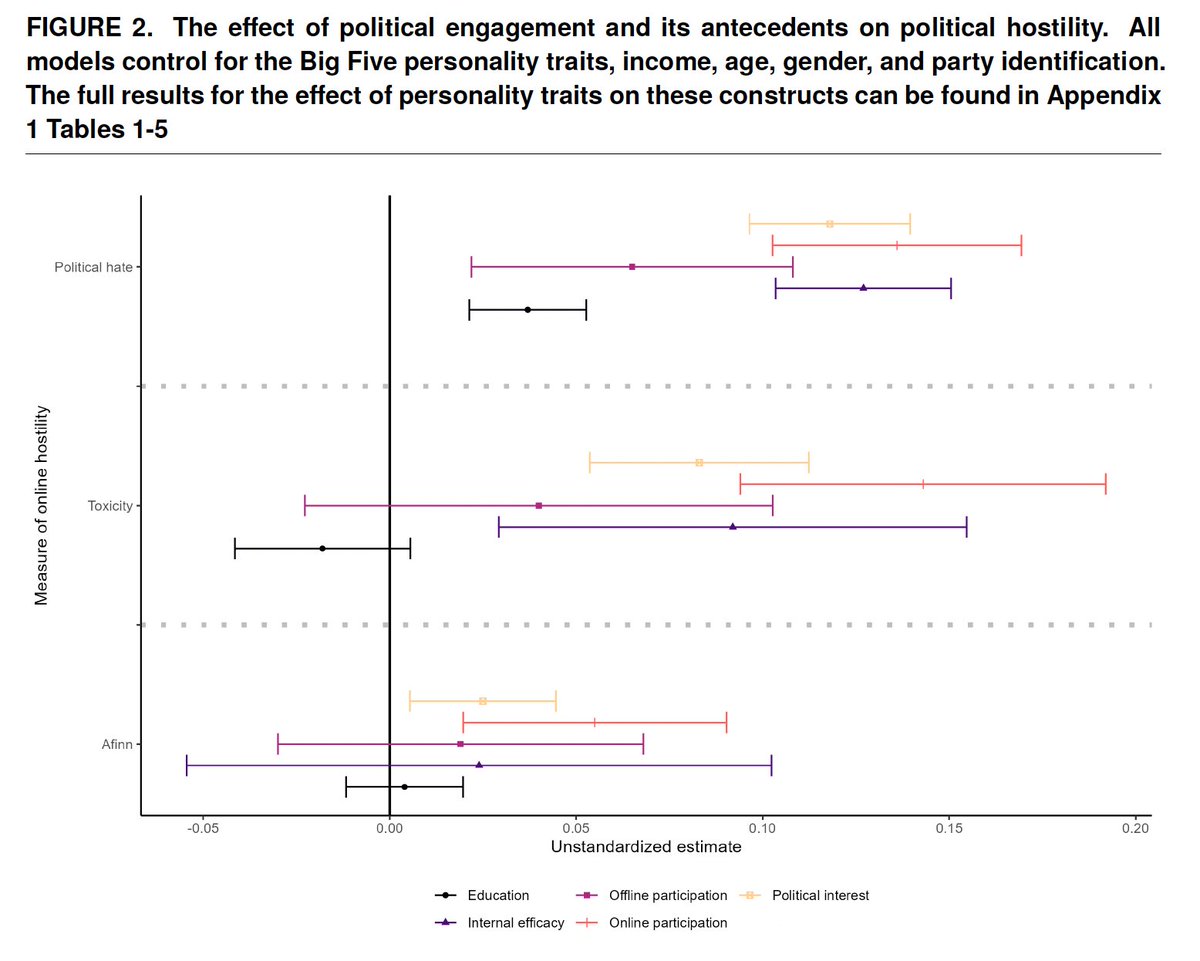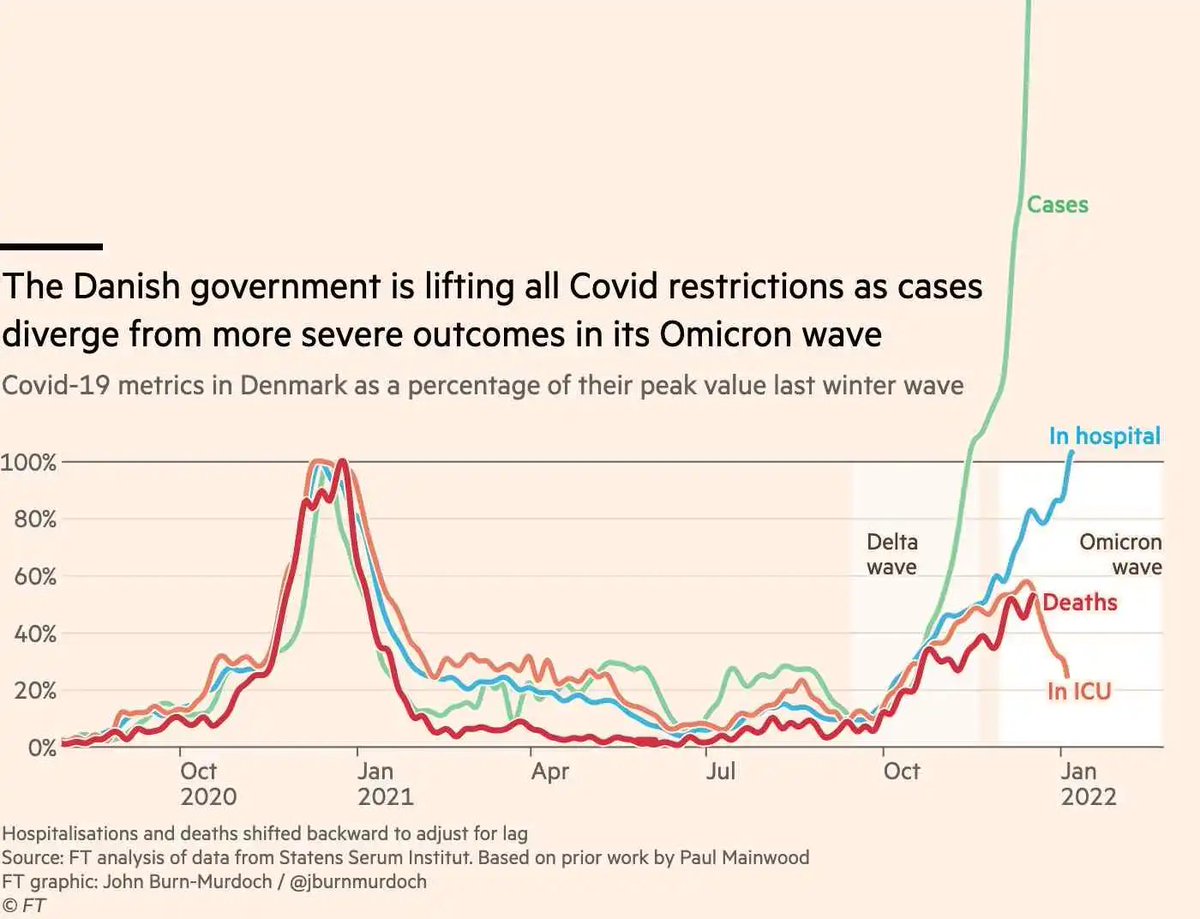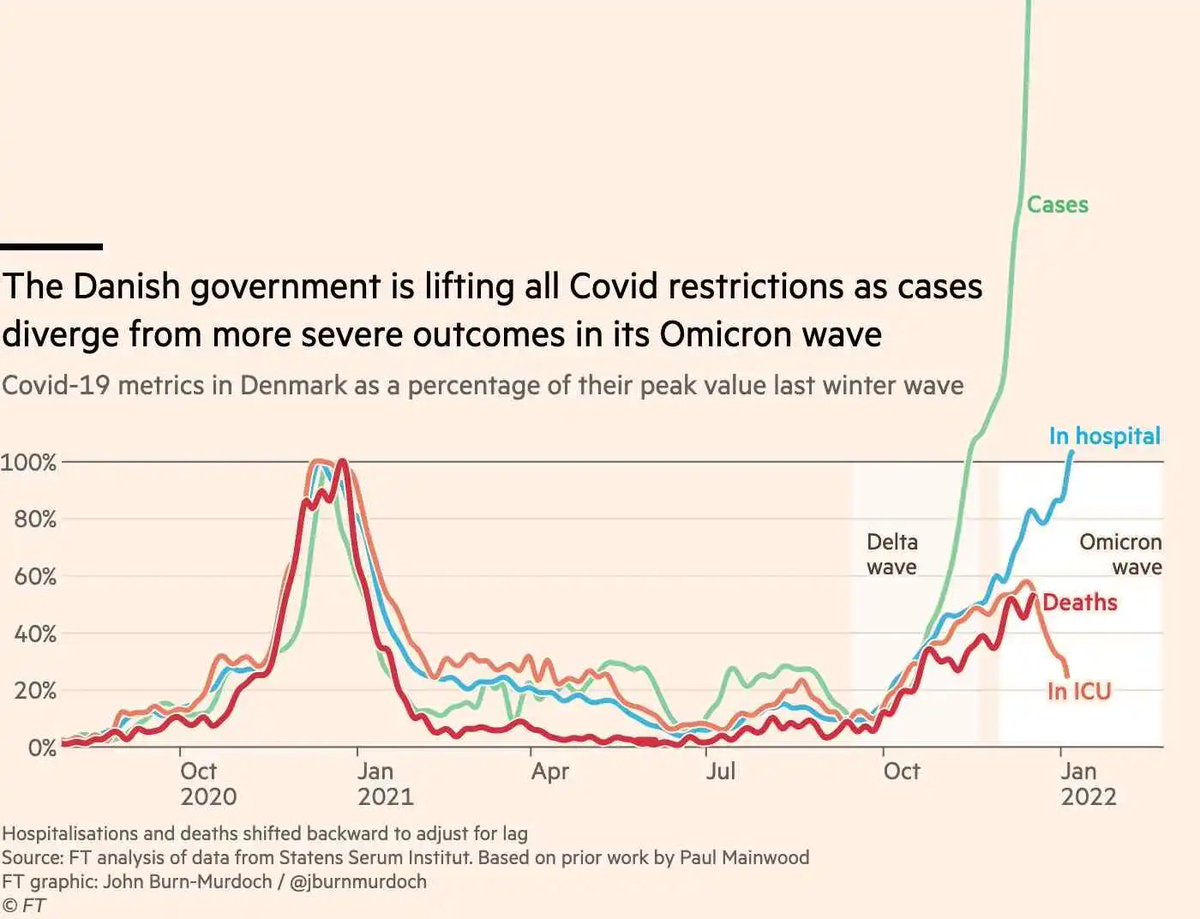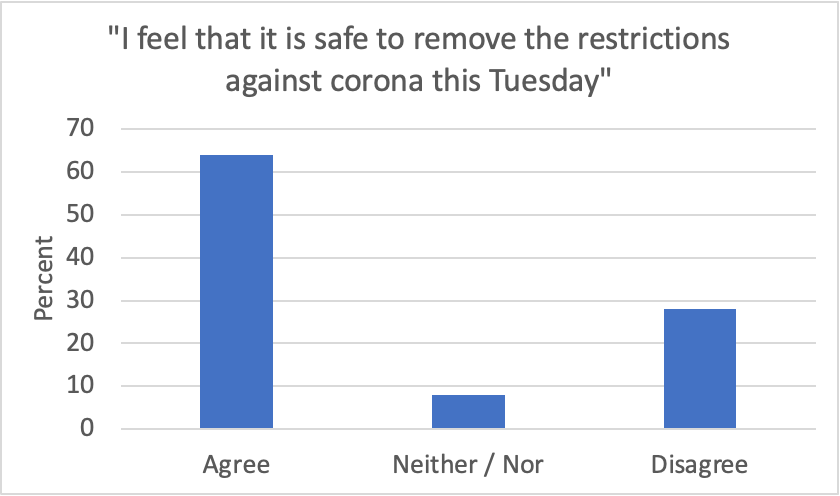
🚨 Preprint of 21 country study
Those not vaxxed against COVID face prejudice, exceeding other targets such as immigrants: psyarxiv.com/t2g45/
A 🧵 on our findings, why they may be controversial, why they in any case are important & how they help remedy the problem.
(1/16)
Those not vaxxed against COVID face prejudice, exceeding other targets such as immigrants: psyarxiv.com/t2g45/
A 🧵 on our findings, why they may be controversial, why they in any case are important & how they help remedy the problem.
(1/16)
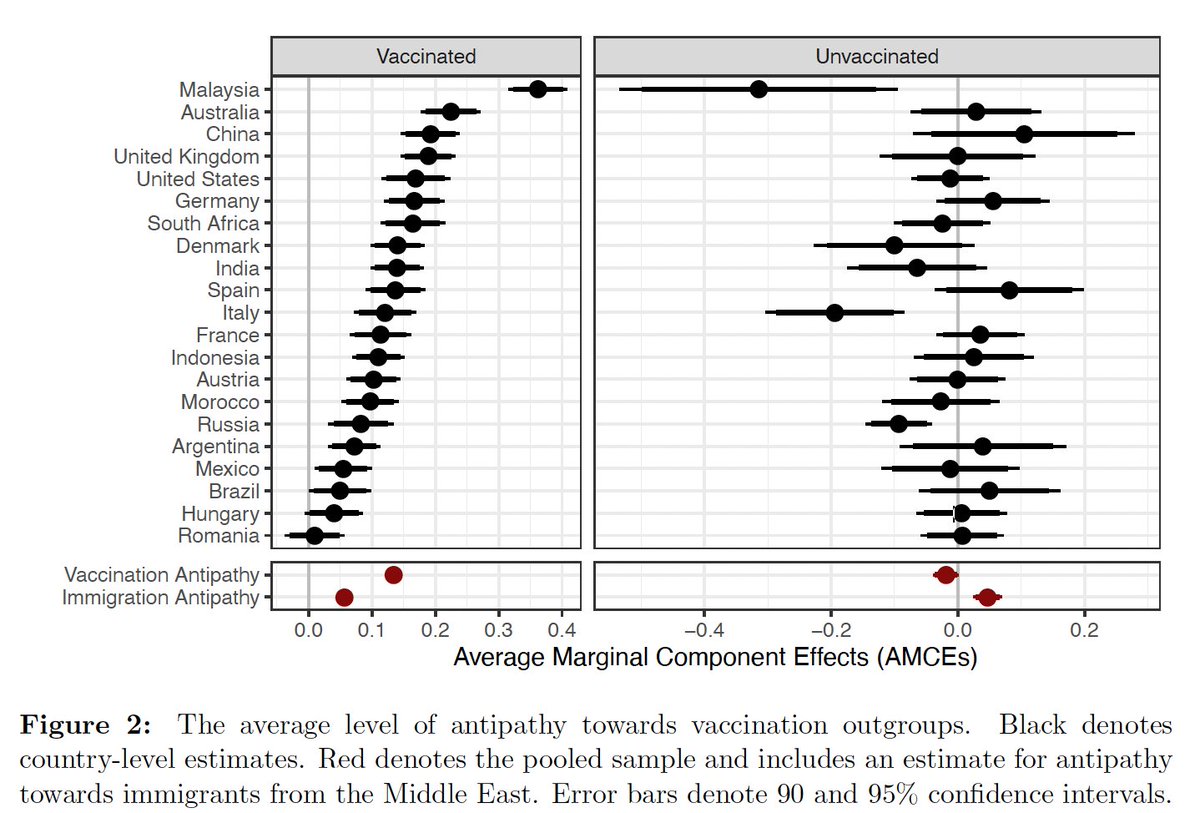
Debates about COVID-19 vaccines are intense, involving vax mandates (bbc.com/news/world-eur…), strong protests (bbc.com/news/world-us-…) & sharp rhetoric (edition.cnn.com/2022/01/05/eur…). (2/16)
Political cleavages have previously been found to elicit prejudice (doi.org/10.1111/ajps.1…), e.g., exclusion from family relationships. Here we ask if there is prejudice between groups defined by COVID-19 vaccination status? (2/16)
Research have found antipathy across vax groups prior to the pandemic (pnas.org/content/117/26…) & using covid-vax intentions (pnas.org/content/118/13…). We lack data from the current polarized context & beyond English-speaking places. In Dec & Jan we collected data here. 👇 (3/16) 
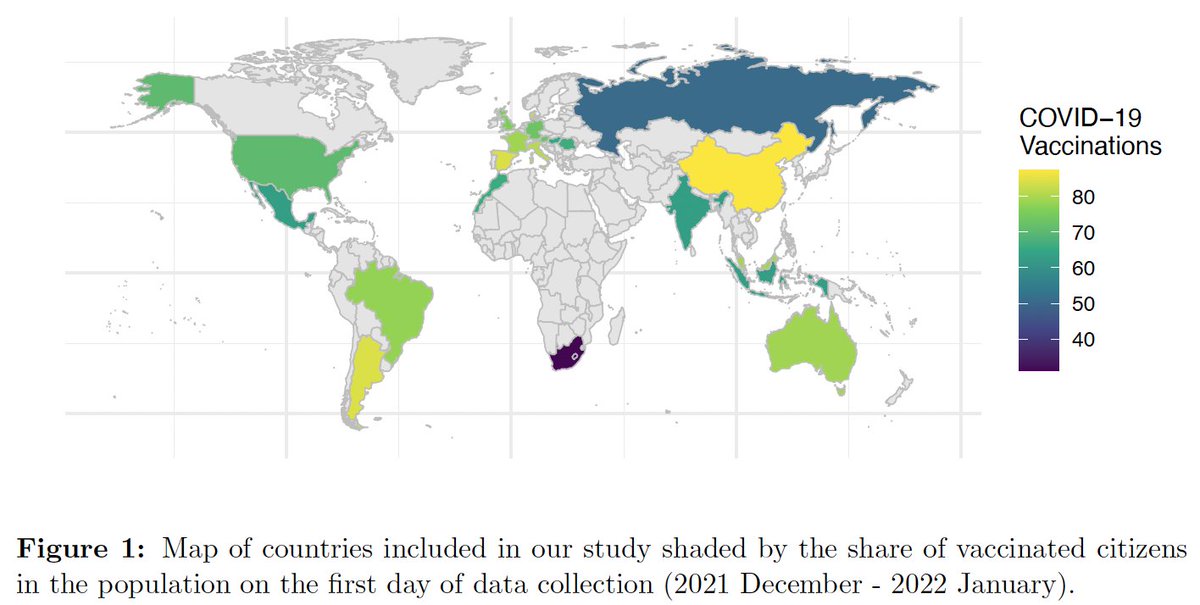
We used a conjoint experiment in representative surveys in 21 countries, reflecting 58 % of the world. Participants were presented with 3 pairs of 2 persons, and asked if they would be unhappy if a family member married the person (a standard measure in prejudice research) (4/16) 
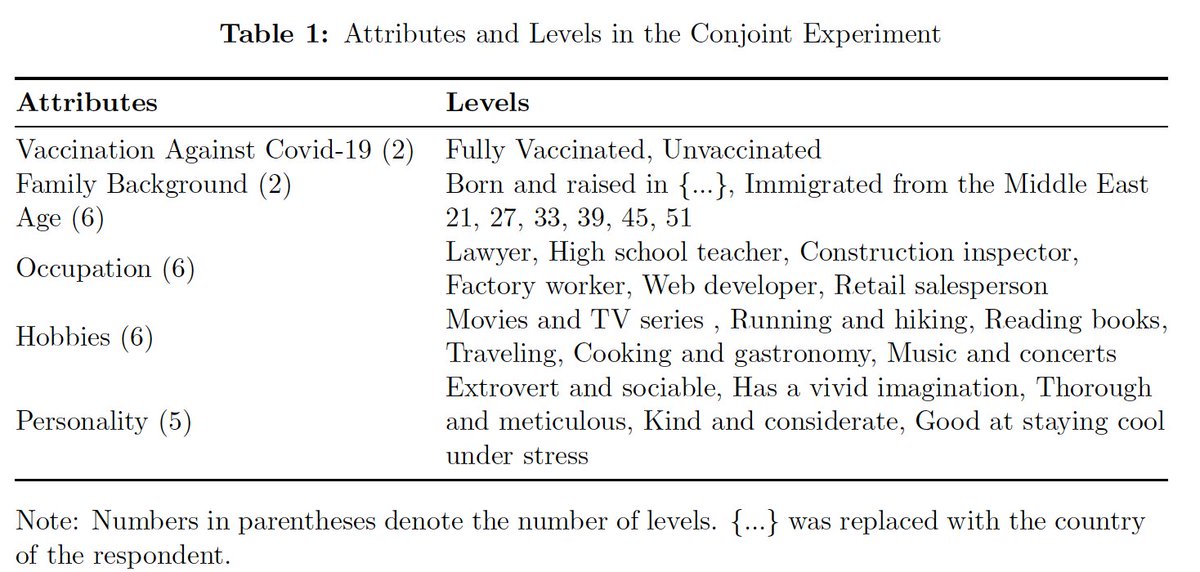
The vaxxed are 13 %-points less happy with an unvaxxed family member than a vaxxed. This is 2.5 times higher than for a frequent target of prejudice: Middle Eastern immigrants. Unvaxxed are prejudiced towards immigrants too; but do not show antipathy towards the vaxxed. (5/16) 
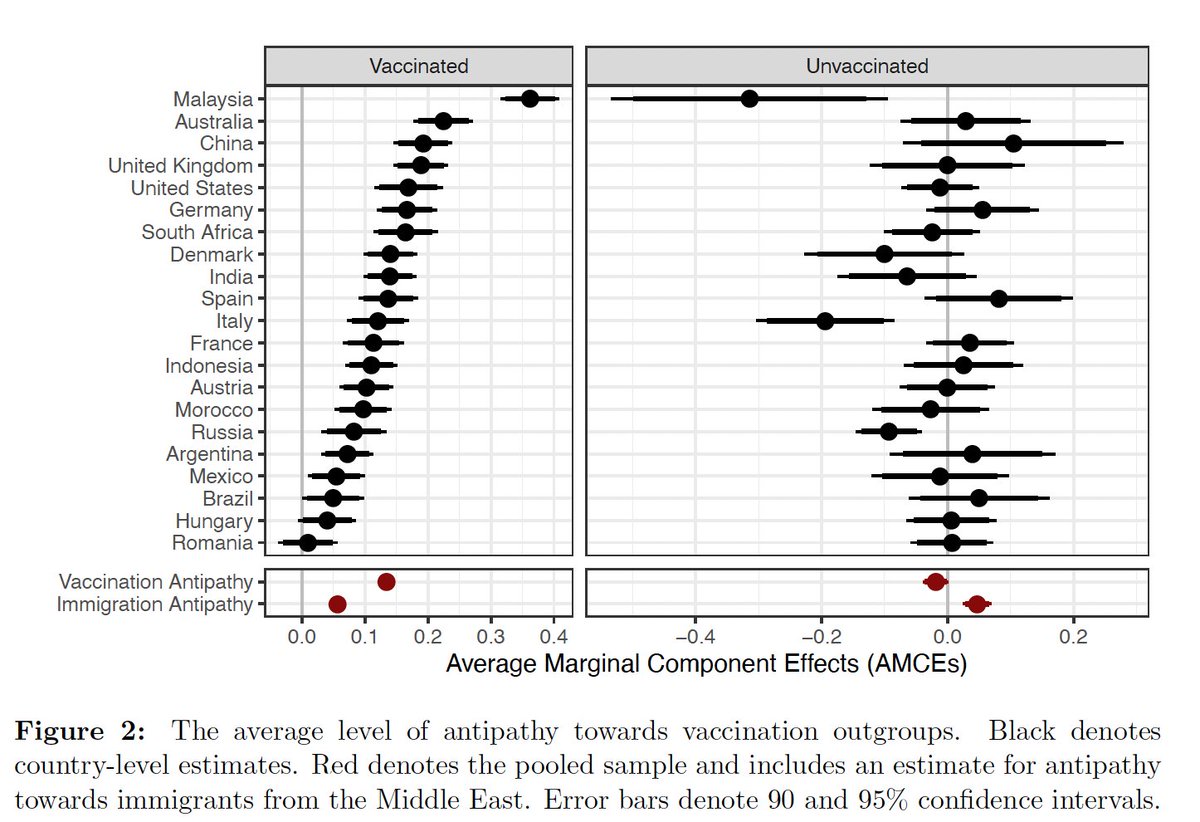
It may be rational for the vaxxed to avoid the unvaxxed, given infection risk. Indeed, vaxxed fear infection from unvaxxed. But they also see them as untrustworthy and unintelligent, which are key drives of antipathy here & in general (doi.org/10.1177/096372…). (6/16) 
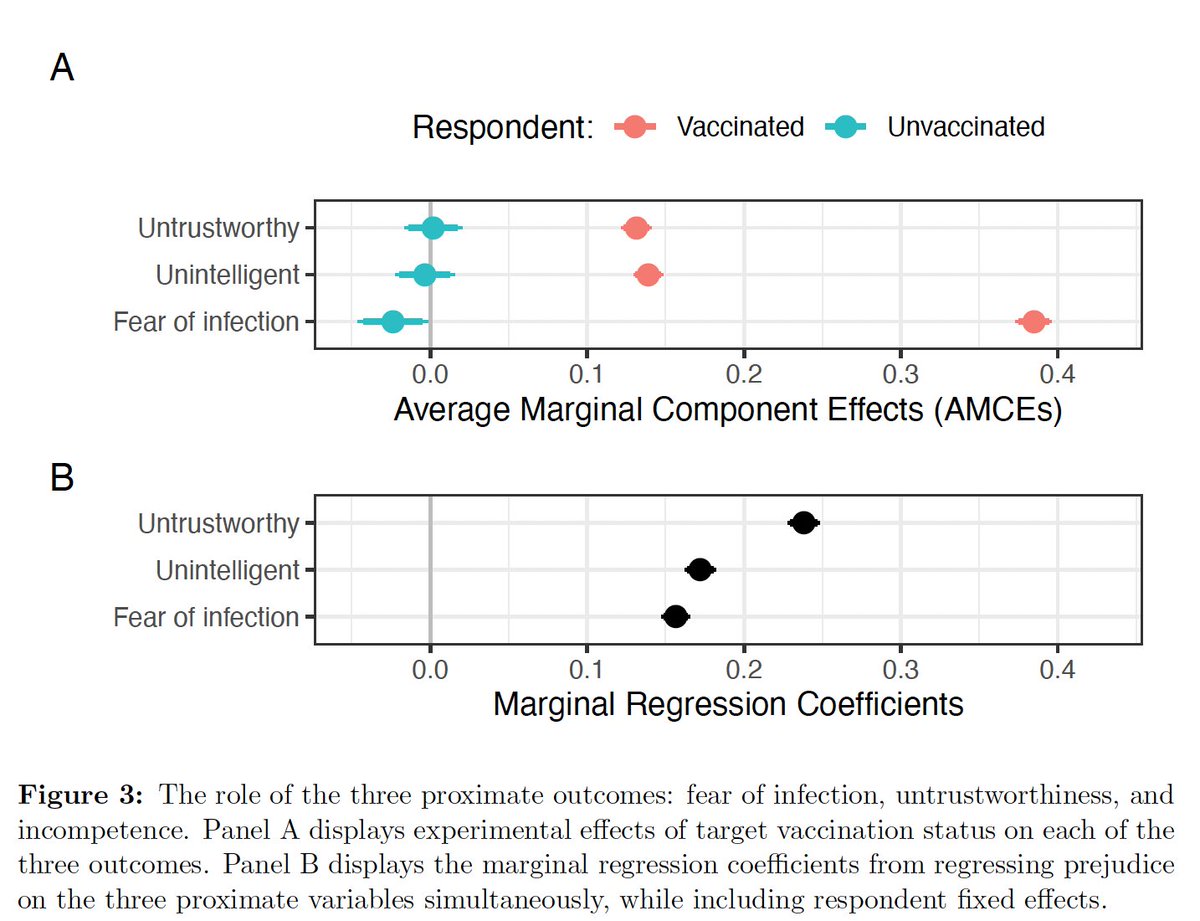
Importantly, the unvaxxed holds no stereotypes about the vaxxed. In fact, they fear infection more from other unvaxxed than from the vaxxed! In light of frequent media stories about misinformation, the unvaxxed react surprisingly reasonable. (7/16)
At the country level, antipathy towards unvaxxed is related to few covid deaths (i.e. more concern about covid) & high social trust (i.e. stronger social norms). But there is little relationship between vax rates & antipathy: Many unvaxxed in countries with high antipathy. (8/16) 
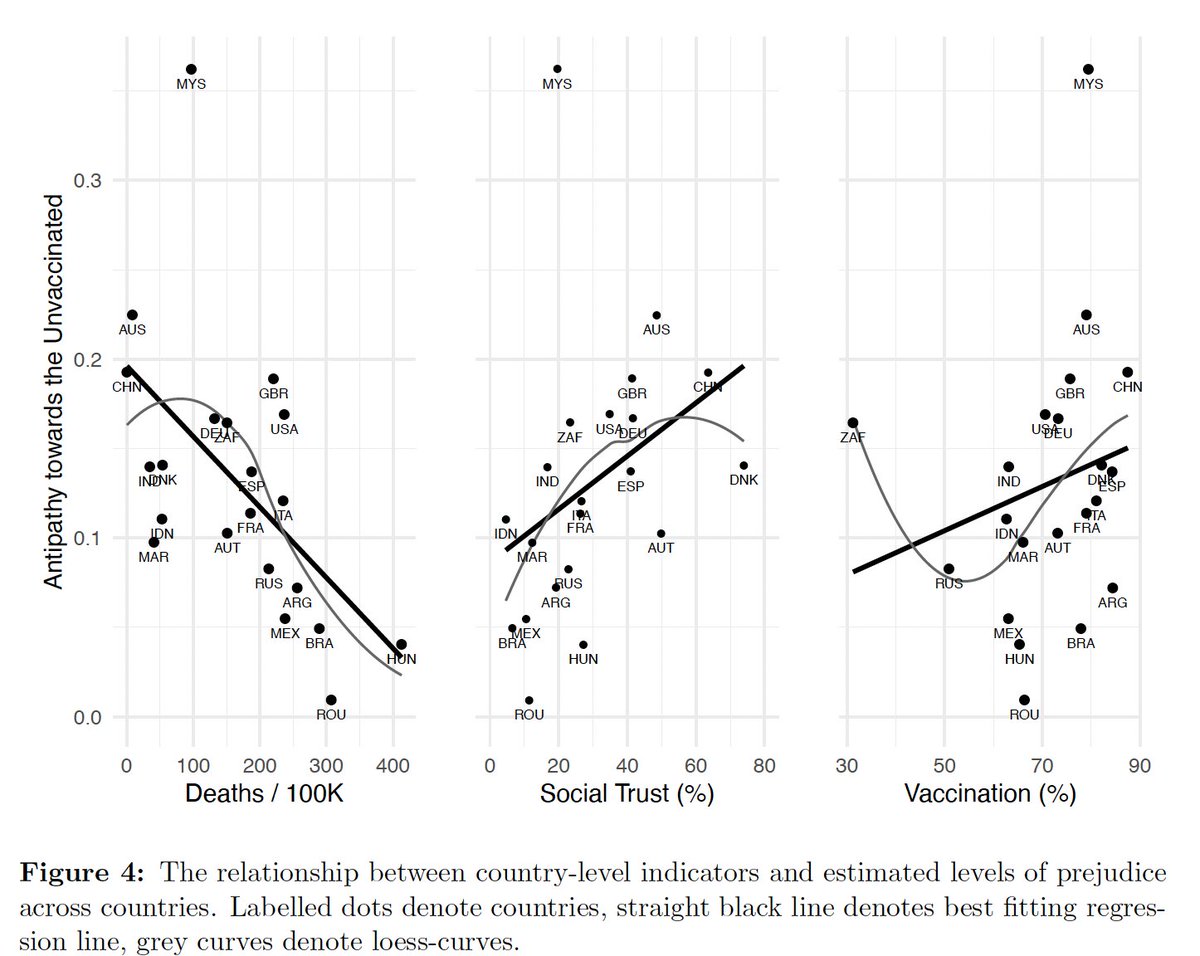
Is this prejudice? We pre-registered it as prejudice & believe it is. In psych, prejudice can be defined as "a negative evaluation of an individual that is significantly based on the individual’s group membership" (psycnet.apa.org/doiLanding?doi…). What we see conforms to this. (9/16)
But, according to some, this may not be prejudice because it is "acceptable": The unvaxxed evade their societal responsibility and put others at risk (thelancet.com/journals/lance…). We offer two arguments against this view. (10/16)
(1) Our data is from the omicron wave. Because of omicron's vaxx-evasion regarding infection (medrxiv.org/content/10.110…), the threat is less about being infected by the unvaxxed & more that the unvaxxed themselves get hospitalized (which is still also a collective threat). (11/16)
(2) The unvaxxed have reasons not captured by the stereotypes. They may have medical reasons, immunity from infection, mental illness that intensifies fear, negative experiences with health authorities (e.g. as a minority) or concerns due to prior public health scandals. (12/16)
BUT: even if you find that it is acceptable to exclude the unvaxxed, the costs are real. The unvaxxed already feel pressured (doi.org/10.1016/j.socs…) & already mistrust the mainstream (dx.doi.org/10.1136/bmjope…). The pressure from everyday exclusion will add to this. (13/16)
We hope that dissimination of our finding that the uvaxxed don't feel antipathy may temper strong prejudice against them. Thus, prior research shows that tolerance increases if negative metaperceptions of others are corrected (osf.io/8ftsx/). (14/16)
If not, it will entrench conflict further. Measures against the unvaxxed should be acts of sorrow, not moralistic triumph (). If societies become more divided, we will be less able to react in both this & the next crises (sciencedirect.com/science/articl…). (15/16)
The study was conducted with @boralexander1 & @FrederikJuhlJr1. You can find our data & materials here: osf.io/7hszd/. Given early feedback, we realize that our conclusions may be controversial & we welcome any thoughts. 🙏
(16/16)
(16/16)
• • •
Missing some Tweet in this thread? You can try to
force a refresh


